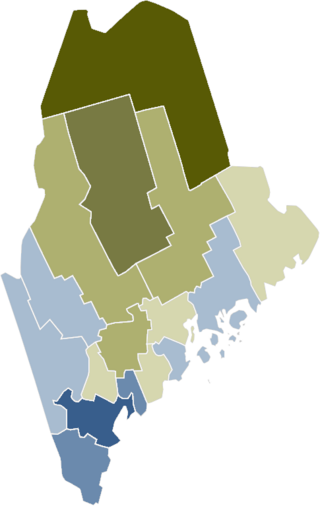
In the United States, cannabis is legal in 38 of 50 states for medical use and 24 states for recreational use. At the federal level, cannabis is classified as a Schedule I drug under the Controlled Substances Act, determined to have a high potential for abuse and no accepted medical use, prohibiting its use for any purpose. Despite this prohibition, federal law is generally not enforced against the possession, cultivation, or intrastate distribution of cannabis in states where such activity has been legalized. On May 1, 2024, the Associated Press reported on federal plans to change marijuana to a Schedule III drug.

The legal history of cannabis in the United States began with state-level prohibition in the early 20th century, with the first major federal limitations occurring in 1937. Starting with Oregon in 1973, individual states began to liberalize cannabis laws through decriminalization. In 1996, California became the first state to legalize medical cannabis, sparking a trend that spread to a majority of states by 2016. In 2012, Washington and Colorado became the first states to legalize cannabis for recreational use.

In the U.S. state of Maine, marijuana (cannabis) is legal for recreational use. It was originally prohibited in 1913. Possession of small amounts of the drug was decriminalized in 1976 under state legislation passed the previous year. The state's first medical cannabis law was passed in 1999, allowing patients to grow their own plants. The cities of Portland and South Portland decriminalized the possession and recreational use of marijuana in 2013 and 2014, respectively.
Cannabis in Vermont as of May 2004 is legal for medical use, and legal for recreational use as of July 1, 2018.

In the US state of Montana, cannabis has been legal for both medical and recreational use since January 1, 2021, when Initiative 190 went into effect. Prior to the November 2020 initiative, marijuana was illegal for recreational use starting in 1929. Medical cannabis was legalized by ballot initiative in 2004. The Montana Legislature passed a repeal to tighten Montana Medical Marijuana (MMJ) laws which were never approved by the governor. However, with the new provisions, providers could not service more than three patients. In November 2016 Bill I-182 was passed, revising the 2004 law and allowing providers to service more than three patients. In May 2023, numerous further bills on cannabis legalization and other related purposes passed the Montana Legislature. The Governor of Montana is yet to either sign or veto the bill.

Cannabis in Wisconsin is illegal for recreational use. Possession of any amount is punishable by up to 6 months in prison and a $1000 fine for a first offense. A second offense is punished as a felony with up to 3.5 years in prison and up to a $10,000 fine. At the local level, however, numerous municipalities and counties have decriminalized cannabis or lessened penalties for minor possession offenses. Medical use is legal only in the form of low-THC cannabis oil.
Cannabis in Iowa is illegal for recreational use if classified as marijuana but consumable hemp products including CBD products are legal for consumers to possess and registered retailers to sell. Possession of even small amounts of marijuana is a misdemeanor crime. The state has a medical program for patients with qualifying debilitating medical conditions that allows for the legal sale and possession of no more than 4.5g of THC per patient every 90-day period. Allowed modes of consumption are oral & topical forms including, but not limited to; tablets and tinctures, nebulizable inhalable forms, suppositories, and vaporization.
Cannabis in Virginia is legal for medical use and recreational use. The first medical marijuana dispensary opened in August 2020, and adult recreational use became legalized in July 2021.

Cannabis in Rhode Island is legal for medical and adult use. Medical use was legalized through legislation approved in 2006, and adult use in 2022.

Cannabis in Pennsylvania is illegal for recreational use, but possession of small amounts is decriminalized in several of the state's largest cities. Medical use was legalized in 2016 through a bill passed by the state legislature.
Cannabis in Hawaii is illegal for recreational use, but decriminalized for possession of three grams or less. Medical use was legalized through legislation passed in 2000, making Hawaii the first state to legalize medical use through state legislature rather than through ballot initiative.
Cannabis in New Mexico is legal for recreational use as of June 29, 2021. A bill to legalize recreational use – House Bill 2, the Cannabis Regulation Act – was signed by Governor Michelle Lujan Grisham on April 12, 2021. The first licensed sales of recreational cannabis began on April 1, 2022.

Cannabis in New Jersey is legal for both medical use and recreational use. An amendment to the state constitution legalizing cannabis became effective on January 1, 2021, and enabling legislation and related bills were signed into law by governor Phil Murphy on February 22, 2021.
Cannabis in Delaware is legal for medicinal and recreational use.

Cannabis in Maryland is legal for medical use and recreational use. Possession of up to 1.5 ounces and cultivation of up to 2 plants is legal for adults 21 years of age and older. In 2013, a state law was enacted to establish a state-regulated medical cannabis program. The program, known as the Natalie M. LaPrade Maryland Medical Cannabis Commission (MMCC) became operational on December 1, 2017.

Cannabis in Florida is illegal for recreational use. Possession of up to 20 grams is a misdemeanor offense, punishable by up to a year in jail, a fine of up to $1000, and the suspension of one's driver's license. Several cities and counties have enacted reforms to apply lesser penalties, however.

Cannabis in Michigan is legal for recreational use. A 2018 initiative to legalize recreational use passed with 56% of the vote. State-licensed sales of recreational cannabis began in December 2019.






